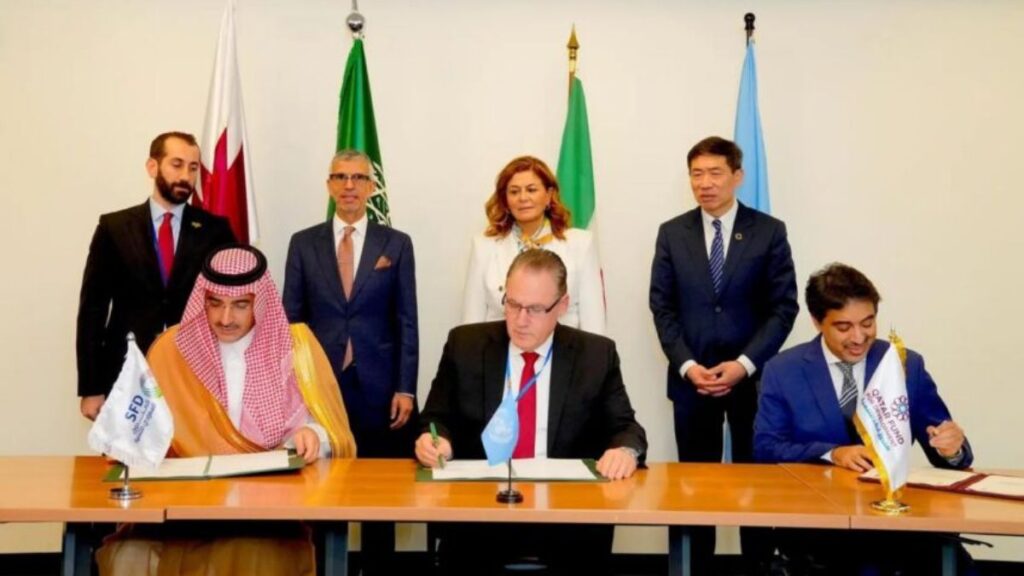
The allocation will help cover a portion of salaries for civil servants in core sectors—such as education, health and social affairs—aimed at preserving service continuity in the war-shattered country. The initiative marks a coordinated push by the Gulf states and UNDP to stabilise social infrastructure amid Syria’s ongoing economic and institutional crisis.
Sultan bin Abdulrahman Al-Marshad, Chief Executive of the Saudi Fund for Development, framed the grant as consistent with Riyadh’s “wise leadership” and commitment to bolstering Syria’s development trajectory. Fahad Hamad Al-Sulaiti, Director General of the Qatar Fund for Development, described the plan as a strategic investment in resilience and human dignity, emphasising the role of public services in underpinning peace and prosperity.
Abdallah Al-Dardari, Director of UNDP’s Regional Bureau for Arab States, noted that the tri-party effort seeks to bridge urgent financing gaps while aligning with Syria’s national recovery goals, particularly in the domains of governance, inclusion and economic revival. The grant is intended to shore up services in government-held territories under the oversight of Syria’s interim administration.
Since the formation of the transitional government in March, led by President Ahmed al-Sharaa, Syria has faced a severe fiscal crunch in funding wages and essential functions of the state. The new government succeeded a caretaker regime after the fall of the Assad system, and took power with a mandate to chart recovery amid sanctions and destruction.
Past Gulf support had included a joint Saudi-Qatar contribution in April to settle Syria’s $15 million in arrears to the World Bank, signalling growing diplomatic reengagement by both states. In May, Saudi and Qatari officials announced plans to support state employees, though the sums and mechanisms had not been fully disclosed then.
Observers say this $89 million package may be a test case for further Gulf investments in Syria’s reconstruction, especially as Riyadh recalibrates its regional posture following regime change in Damascus. It also comes at a moment when the Syrian leadership is pressing for relief from U. S. sanctions imposed under the Caesar Act, calling them an impediment to recovery.
Implementation will be conducted through UNDP, which is expected to liaise with Syria’s ministries to channel funds transparently into service sectors. Under this modality, the allocation targets not only salary support but also reinforcing institutional capacity and accountability.
Critics warn, however, that sustaining essential services for only three months is a stopgap, and long-term stability depends on deeper structural reforms, debt relief, and resumption of broader international engagement. Meanwhile, Damascus has publicly expressed its gratitude to Doha and Riyadh, viewing the move as recognition of the new government’s legitimacy—and a signal of Gulf confidence in its future direction.
Sanctions compliance remains a delicate factor: despite the U. S. granting limited exemptions to allow humanitarian transactions, Gulf donors have previously cited ambiguity over restrictions as a deterrent to fuller support. The outcome of this initiative may influence whether Gulf capital becomes a steady feature in Syria’s reconstruction financing landscape.
Across Syria, overburdened public institutions are already operating amid fragmented control, deteriorated infrastructure and severe revenue shortfalls. State employees in many regions have gone months without wages, contributing to services collapsing in health and education. The infusion from Qatar and Saudi Arabia aims to plug critical gaps, albeit temporarily, in a fragile institutional framework.
Topics
Qatar
